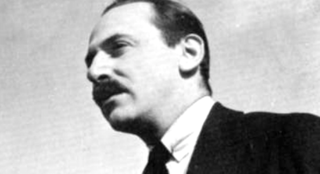A Quote by Clive Barker
Related Quotes
She had witnessed the world's most beautiful things, and allowed herself to grow old and unlovely. She had felt the heat of a leviathan's roar, and the warmth within a cat's paw. She had conversed with the wind and had wiped soldier's tears. She had made people see, she'd seen herself in the sea. Butterflies had landed on her wrists, she had planted trees. She had loved, and let love go. So she smiled.
The Flapper awoke from her lethargy of sub-deb-ism, bobbed her hair, put on her choicest pair of earrings and a great deal of audacity and rouge and went into the battle. She flirted because it was fun to flirt and wore a one-piece bathing suit because she had a good figure she was conscious that the things she did were the things she had always wanted to do. Mothers disapproved of their sons taking the Flapper to dances, to teas, to swim and most of all to heart.
At that moment a very good thing was happening to her. Four good things had happened to her, in fact, since she came to Misselthwaite Manor. She had felt as if she had understood a robin and that he had understood her; she had run in the wind until her blood had grown warm; she had been healthily hungry for the first time in her life; and she had found out what it was to be sorry for someone.
The other me, who did not mean to drown herself, went under the sea and remained there for a long time. Eventually she surfaced near Japan and people gave her gifts but she had been so long under the sea she did not recognize what they were. She is a sly one. Mostly at night we commune. Night. Harbinger of dream and nightmare and bearer of omens which defy the music of words. In the morning the fear of her going is very real and very alarming. It can make one tremble. Not that she cares. She is the muse. I am the messenger.
She had been sharing a house with him for a week, and he had not once flirted with her. He had worked with her, asked her opinion, slapped her on the knuckles figuratively speaking when she was on the wrong track, and acknowledged that she was right when she corrected him. Dammit, he had treated her like a human being.
I found her lying on her stomach, her hind legs stretched out straight, and her front feet folded back under her chest. She had laid her head on his grave. I saw the trail where she had dragged herself through the leaves. The way she lay there, I thought she was alive. I called her name. She made no movement. With the last ounce of strength in her body, she had dragged herself to the grave of Old Dan.
In this moment she felt that she had been robbed of an enormous number of valuable things, whether material or intangible: things lost or broken by her own fault, things she had forgotten and left in houses when she moved: books borrowed from her and not returned, journeys she had planned and had not made, words she had waited to hear spoken to her and had not heard, and the words she meant to answer with. . . .
He smoked a cigarette, standing in the dark and listening to her undress. She made sea sounds; something flapped like a sail; there was the creak of ropes; then he heard the wave-against-a-wharf smack of rubber on flesh. Her call for him to hurry was a sea-moan, and when he lay beside her, she heaved, tidal, moon-driven.
She fell into a deep pool of sticky water, which eventually closed over her head. She saw nothing and heard nothing but a faint booming sound, which was the sound of the sea rolling over her head. While all her tormentors thought that she was dead, she was not dead, but curled up at the bottom of the sea.
In a way, her strangeness, her naiveté, her craving for the other half of her equation was the consequence of an idle imagination. Had she paints, or clay, or knew the discipline of the dance, or strings, had she anything to engage her tremendous curiosity and her gift for metaphor, she might have exchanged the restlessness and preoccupation with whim for an activity that provided her with all she yearned for. And like an artist with no art form, she became dangerous.






































